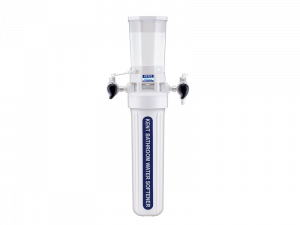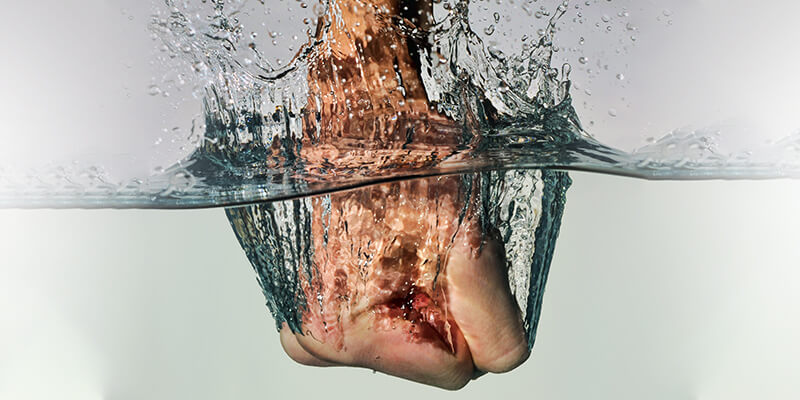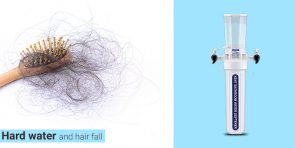Hard Water Vs. Soft Water – What’s the Difference?
The type of water that you get has an effect on your health and well-being. Not just health issues, but your skin and hair are also affected by the quality of water that you receive. While microorganisms in water lead to a number of diseases, the excess minerals such as calcium and magnesium make water hard. So, if you have noticed that your skin is excessively dry or your hair is frizzy, blame it on hard water. A lot of people, however, don’t know the difference between hard and soft water. If you too are one of them, this blog is for you.
Difference Between Hard and Soft water
To make you understand how hard and soft water are different from each other, here are some of the key differences between hard water and soft water:
| Difference between Hard water and Soft water | |
|
HARD WATER |
SOFT WATER |
| 1. High in minerals (especially calcium and magnesium) | 1. Low in minerals (especially calcium and magnesium) |
| 2.Can cause mineral buildup in pipes and appliances | 2. Does not cause mineral buildup in pipes and appliances |
| 3. Can cause soap scum and mineral deposits | 3. Does not leave soap scum or mineral deposits |
| 4. Makes it harder to lather soap and shampoo | 4. Lathers easily and requires less soap and shampoo |
| 5. Can give water a slightly bitter or metallic taste | 5. Has a slightly salty taste (due to sodium) |
| 6. Can contribute to the formation of kidney stones | 6.May be more easily absorbed by the body |
| 7. Can make laundry detergent less effective | 7. Can make laundry detergent more effective |
| 8. Requires water softeners to reduce mineral content | 8. Does not require water softeners |
| 9. Can be beneficial for bone health | 9. Can be more environmentally friendly |
| 10. Occurs in areas with high mineral soil and rock | 10. Occurs in areas with surface water sources |
What is Soft Water?
Soft water indicates that the water has a low concentration of ions such as calcium and magnesium. Soft water occurs naturally in areas where the basin of rivers is formed by calcium-poor rocks. As soft water has low levels of calcium, it doesn’t leave soap scum on your skin or clothes. Soft water doesn’t leave calcium deposits in the water heating systems and plumbing fixtures. Soft water has less than 1 grain per gallon of dissolved minerals. Soft water also lacks the mineral taste of hard water.
Benefits of Using Soft Water
Using soft water can provide serval benefits, including
- Cleaner dishes and glassware without water spots or residue.
- Softer, brighter, and longer-lasting clothing.
- Reduced mineral buildup in pipes and appliances, increasing their lifespan and efficiency.
- Increased effectiveness and longevity of soaps, shampoos, and other cleaning products.
- Better lathering ability for soaps and shampoos.
- Reduced soap scum and mineral deposits in bathtubs, showers, and sinks.
- Softer and smoother skin and hair.
- Reduced risk of clogged pipes and plumbing repairs.
- Lower energy consumption and cost due to improved appliance efficiency.
- Improved taste and odor of drinking water.
Disadvantages of Using Soft Water
While soft water can offer several benefits, there are also some potential disadvantages, including
- Higher sodium content, which can be problematic for individuals on low-sodium diets or with sodium-related health issues.
- Soft water can be slightly acidic, which can cause corrosion to metal pipes and fixtures over time.
- Soft water can sometimes have a “slippery” feel due to the lack of minerals.
- Soft water may not provide the same beneficial minerals, such as calcium and magnesium, that hard water does.
- Soft water can sometimes cause a sour taste in food that is boiled in it.
What is Soft Water?
Water from natural sources is always soft. However, before the water reaches your tap, the water you get picks up minerals such as lime, chalk, calcium, and magnesium, which makes water hard. There is a significant difference in the taste of hard and soft water. Many people prefer drinking hard water as it has essential minerals. However, hard water leaves a residue and spots on your utensils, making your clothes look dingy. In addition, hard water also makes your skin dull and damages your hair.
Benefits of Hard Water
While soft water is often preferred, hard water can offer several benefits, including:
- Provides essential minerals such as calcium and magnesium, which can be beneficial for bone health.
- Can improve the taste of certain types of food, such as tea or coffee.
- Can help prevent mineral deficiency in plants.
- Hard water can often be sourced from natural underground springs, which can be a more sustainable water source.
- Can make hair feel thicker and fuller due to the mineral content.
- Can provide a more satisfying shower experience due to the presence of minerals.
- Can increase the lifespan of some types of water-using appliances, such as washing machines.
- Can help prevent copper or lead from leaching into drinking water from pipes.
- Can act as a natural fabric softener, reducing the need for additional products.
- Hard water can sometimes be less expensive to source and treat compared to soft water.
Disadvantages of Hard Water
- Leaves stains on dishes and clothes
- Uses more energy
- Makes skin dry
- Damages hair
Signs that you Get Hard Water
It’s very easy to know if you get hard water at home. All you need to do is check for the following signs:
- Yellowish stains in your toilet
- Soap scum on your clothes and hair
- Clogged pipes
- Itchy and dry skin even after using the right products
- Appliances need frequent repairs
- Water faucets have low flow
Solutions for Hard Water
The only way to save your home from hard water damage is by softening water. There are a few ways that you can use to soften hard water some of which include:
-
Use Water Softener

Softening water using traditional methods is time taking and not very effective. The only solution to make hard water soft is by using a water softener. The appliance doesn’t use electricity to make hard water soft. The water softeners use the ion exchange process to make water soft. The water softener exchanges ions of calcium and magnesium with sodium to make water soft. Salt is the key ingredient used in the water softener, which is why it is completely safe to use the appliance.
-
Shower Head Water Softener
As the name suggests, these water softeners are fitted on the shower head. Though these softeners make water soft for some time, they are not as effective as water softeners. The minerals present in hard water damage the shower head within a short span of time.
Last Few Words
Hard water can have a negative effect on your hair and skin. Using a water softener can be of great help in reducing hardness in water and making it suitable for use. You can use either point-of-use or whole-house KENT Water Softener according to your budget and need. However, before you get a water softener, check the water quality. You can check the water quality for free with KENT.





